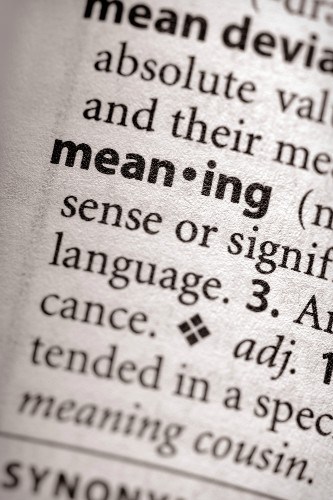About The Word Polarization

Learn about the word Polarization to help solve your crossword puzzle. Discover Polarization definitions and meaning, origins, synonyms, related terms and more at the free Crossword Dictionary.
Polarization

| Polarization Definition And Meaning |
|---|
What's The Definition Of Polarization?
[n] the phenomenon in which waves of light or other radiation are restricted in direction of vibration
[n] the condition of having or giving polarity Synonyms | Synonyms for Polarization: polarisation | polarisation Related Terms | Find terms related to Polarization: agreement to disagree | anteposition | antigravity | antithesis | centrifugal force | confrontation | confrontment | contention | contraposition | contrariety | contrast | cross-purposes | diamagnetism | difference | difference of opinion | difficulty | disaffinity | disagreement | disparity | dividedness | division | hostility | magnetic axis | magnetic pole | magnetic repulsion | misunderstanding | mutual repulsion | N pole | negative pole | north pole | odds | opposing | opposition | opposure | polar opposition | polarity | pole | posing against | positive pole | repellence | repellency | repelling | repulsion | S pole | south pole | variance See Also | condition | optical phenomenon | status Polarization In Webster's Dictionary \Po`lar*i*za"tion\, n. [Cf. F. polarisation.]
1. The act of polarizing; the state of being polarized, or of
having polarity.
2. (Opt.) A peculiar affection or condition of the rays of
light or heat, in consequence of which they exhibit
different properties in different directions.
Note: If a beam of light, which has been reflected from a
plate of unsilvered glass at an angle of about 56[deg],
be received upon a second plate of glass similar to the
former, and at the same angle of incidence, the light
will be readily reflected when the two planes of
incidence are parallel to each other, but will not be
reflected when the two planes of incidence are
perpendicular to each other. The light has, therefore,
acquired new properties by reflection from the first
plate of glass, and is called polarized light, while
the modification which the light has experienced by
this reflection is called polarization. The plane in
which the beam of light is reflected from the first
mirror is called the plane of polarization. The angle
of polarization is the angle at which a beam of light
must be reflected, in order that the polarization may
be the most complete. The term polarization was derived
from the theory of emission, and it was conceived that
each luminous molecule has two poles analogous to the
poles of a magnet; but this view is not now held.
According to the undulatory theory, ordinary light is
produced by vibrations transverse or perpendicular to
the direction of the ray, and distributed as to show no
distinction as to any particular direction. But when,
by any means, these, vibrations are made to take place
in one plane, the light is said to be plane polarized.
If only a portion of the vibrations lie in one plane
the ray is said to be partially polarized. Light may be
polarized by several methods other than by reflection,
as by refraction through most crystalline media, or by
being transmitted obliquely through several plates of
glass with parallel faces. If a beam of polarized light
be transmitted through a crystal of quartz in the
direction of its axis, the plane of polarization will
be changed by an angle proportional to the thickness of
the crystal. This phenomenon is called rotatory
polarization. A beam of light reflected from a metallic
surface, or from glass surfaces under certain peculiar
conditions, acquires properties still more complex, its
vibrations being no longer rectilinear, but circular,
or elliptical. This phenomenon is called circular or
elliptical polarization.
3. (Elec.) An effect produced upon the plates of a voltaic
battery, or the electrodes in an electrolytic cell, by the
deposition upon them of the gases liberated by the action
of the current. It is chiefly due to the hydrogen, and
results in an increase of the resistance, and the setting
up of an opposing electro-motive force, both of which tend
materially to weaken the current of the battery, or that
passing through the cell.
|
More Crossword Puzzle Words
A | B | C | D | E | F | G | H | I | J | K | L | M | N | O | P | Q | R | S | T | U | V | W | X | Y | Z
Cross Word Of The Day
- Serjeant-at-law ‐ an English barrister of the…
- Roast veal ‐ cut of veal suitable…
- Hunt down ‐ pursue for food or sport (as of wild animals); "Goering often…
- Rose apple ‐ fragrant oval yellowish tropical fruit used in jellies and confections…
- Verdun ‐ a battle in World War I (1916); in some of the bloodiest fighting…
- Lotus americanus ‐ North American annual with red or…
- Sportingly ‐ so as to be sporting; in a…
- Long underwear ‐ an undergarment with shirt and drawers in…
- Glucose tolerance test ‐ test of the body's ability to metabolize carbohydrates; used…
- Pressingly ‐ in a…